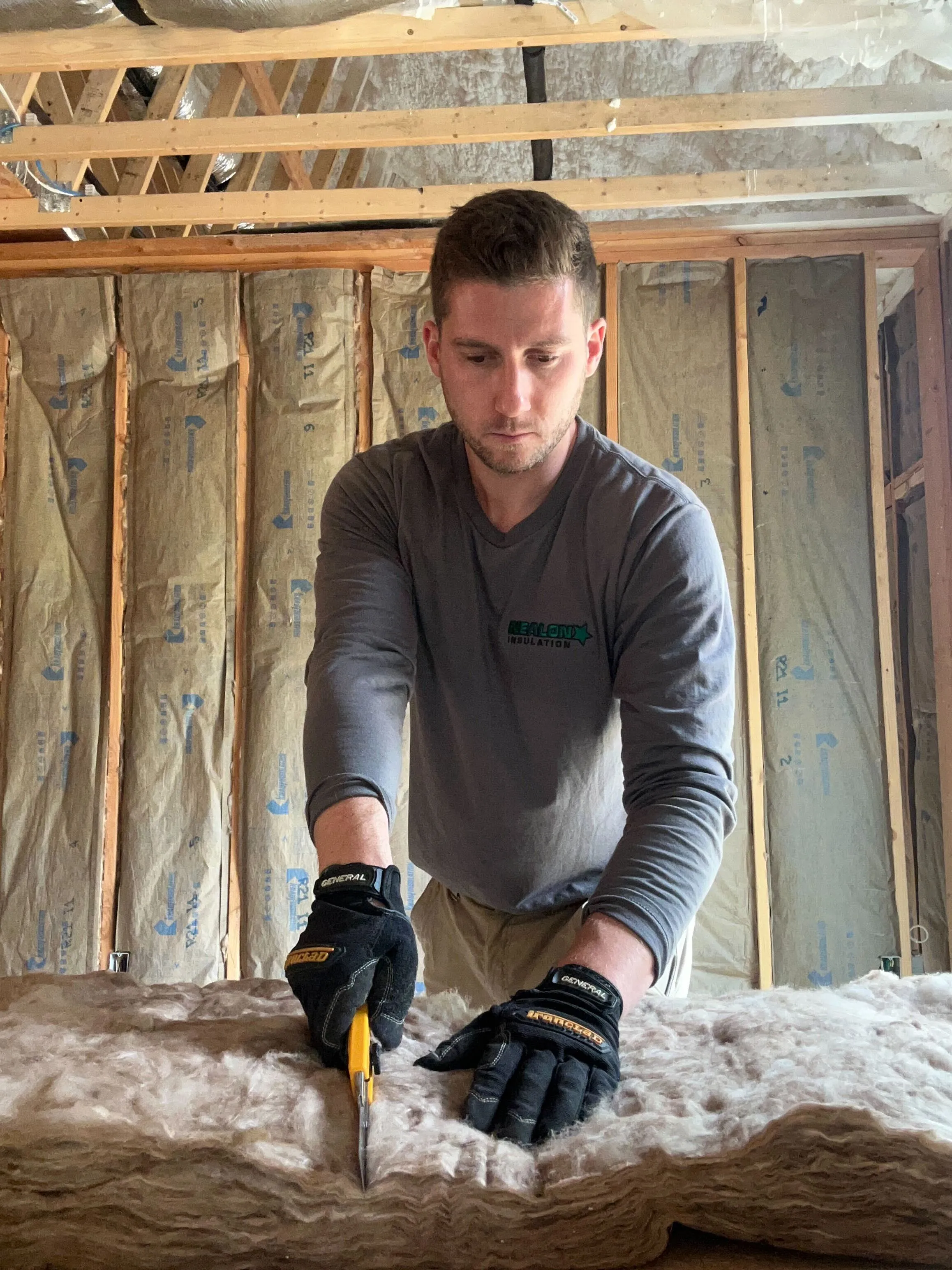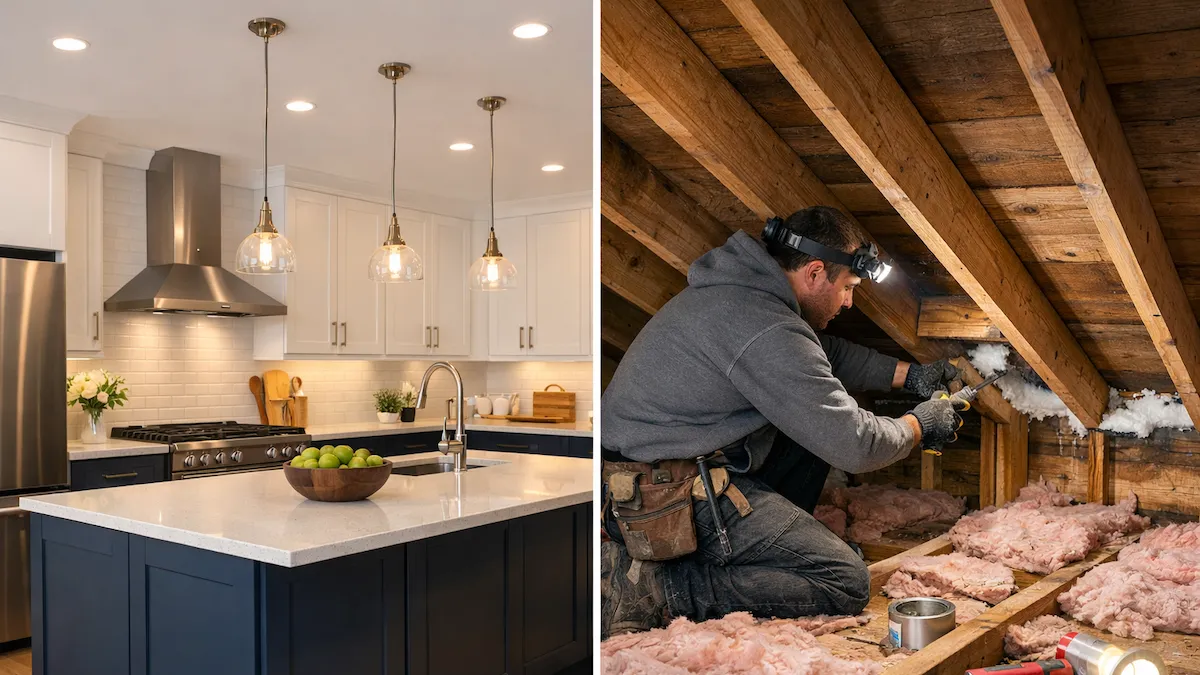How To Check if Your Contractor is Registered and Insured in Connecticut
.webp)
Hiring the wrong contractor can cost you far more than money. In Connecticut, an unlicensed or uninsured contractor can leave you on the hook for unfinished work, code violations, or even medical bills if someone gets hurt on your property. And most homeowners do not realize there is a simple way to protect themselves before signing anything.
This article shows you exactly how to check if a contractor is licensed and insured in Connecticut, without guesswork or legal jargon. You will learn how to spot red flags early and verify credentials with confidence so you can move forward knowing your home and wallet are protected.
By the end of this article, you will know how to:
- Verify a contractor’s license using official Connecticut resources
- Confirm insurance coverage that actually protects you
- Avoid common mistakes homeowners make when hiring contractors
This guide comes from Nealon Insulation, a Connecticut-based company with decades of experience working within state regulations and helping homeowners make informed decisions about their projects. They have seen firsthand what happens when the wrong contractor gets hired, and how easily it can be avoided.
If you want peace of mind before your next home improvement project, start here.
How to Check a Contractor’s Registration
It takes five minutes online:
- Go to the Connecticut eLicense Website – the DCP’s public database.
- Search by Name or Registration Number – if nothing comes up, that’s a red flag.
- Confirm the Registration is Active – expired or suspended registrations aren’t valid.
- Check the Type – make sure it matches your project (HIC for improvements, NHC for new builds).
How to Verify a Contractor’s Insurance
Registration is step one. Insurance is step two.
- Ask for a Certificate of Insurance (COI) directly from their insurer.
- Make sure it lists you as the certificate holder.
- Call the insurance company to confirm it’s current.
If a contractor hesitates here, walk away. A legitimate pro won’t.
License vs. Registration: What’s the Difference?
In Connecticut, home improvement contractors aren’t “licensed” trades—they’re registered.
- A license proves someone has passed exams and demonstrated technical skill (think electricians, plumbers, or HVAC techs).
- A registration doesn’t test skill. Instead, it’s a legal requirement that puts a contractor on record with the DCP, ensures they follow consumer protection laws, and ties them into state oversight.
While registration doesn’t guarantee craftsmanship, it gives homeowners something valuable: access to the Home Improvement Guaranty Fund.
The Home Improvement Guaranty Fund
Here’s the big perk of hiring a registered contractor in Connecticut: it makes you eligible for the state’s Home Improvement Guaranty Fund. This fund, managed by the Department of Consumer Protection, can reimburse homeowners up to $25,000 if a registered contractor takes your money, botches the job (or never finishes), and then refuses to pay even after a court judgment.
No registration = no access to the fund.
Why Registration and Insurance Matter
Think of contractor registration like a driver’s license—it proves they’re legally on the road. If they’re not registered, they’re operating outside the rules.
Insurance is your seatbelt. If a contractor damages your property or a worker gets hurt, insurance keeps you from footing the bill. Without it, you could be staring down lawsuits and repair costs.
Here’s the kicker: plenty of homeowners trust a smile and a business card without asking for proof. That’s like letting someone borrow your car because they “promise” they can drive stick. A quick check of registration and insurance protects your home, your wallet, and your peace of mind.
Types of Contractor Credentials in Connecticut
- Home Improvement Contractor Registration (HIC):
Required for remodeling, insulation, siding, roofing, decks, and most work on existing homes. - New Home Construction Contractor Registration (NHC):
Required for building a brand-new house from the ground up.
Both are overseen by the DCP, and contractors must renew annually.
Red Flags to Watch Out For
- No proof of registration or insurance.
- A bid that’s way lower than everyone else’s.
- Demands for full payment upfront.
- Pressure to “sign today.”
Legit contractors don’t hide the ball. If something feels off, it probably is.
What to Do if Your Contractor Isn’t Registered or Insured
- Pause the project. Don’t sign or pay.
- Report it. File a complaint with the DCP.
- Know your risk. If you knowingly hire someone unregistered or uninsured, you’re the one on the hook if things go wrong.
Better to wait a few weeks for the right pro than spend years untangling a mess.
Conclusion
Hiring a contractor isn’t just about who swings a hammer—it’s about protecting your home, your money, and your sanity. In Connecticut, that means making sure your contractor is registered with the DCP and insured.
Registration ties them into state oversight and gives you access to the Home Improvement Guaranty Fund. Insurance makes sure you’re not footing the bill if disaster strikes.
Five minutes of homework upfront can save you thousands down the line.
Related Articles
Let's Work Together
Ready to transform your home into an energy-efficient haven? Schedule your free energy assessment today and experience the Nealon difference for yourself.



